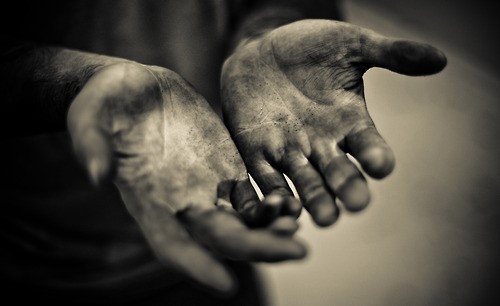There have been several items in the news this week about Episcopal churches stepping up to help in any way they can during the pandemic. Here is a small sampling of those efforts.
From Vermont, a parish which has expanded its homeless ministry:
With the pandemic came an opportunity.
The Rev. Earl Kooperkamp and the people of the Church of the Good Shepherd in Barre had been working to help homeless people in Washington County for more than a decade, serving them a hot breakfast two mornings a week, and working with ecumenical partners to help find them stable places to live.
… “We surfaced the idea: Can the state get a block of hotel rooms?” Kooperkamp says. “The state agreed. Also the hotels were emptied out. The hotel owners were like, ‘You want to rent out our rooms for a while? Please!’”
Most of the Good Samaritan guests moved to the shut-down Econolodge in Montpelier. Others went to The Hilltop in Berlin, or the Pierre and the Budget Inn in Barre. The move brought significant challenges, such as providing three meals a day for people who could no longer follow their old routines. But it also brought an opportunity.
“We said, ‘Now we’ve got a month when people will be in hotels,’” Kooperkamp says. “Can we get people to fill out apartment applications, use the $1,200 [from the CARES Act] for security deposit, and get people into apartments? If so, we’ve got the opportunity maybe not to end homelessness completely, but to clear out the Good Samaritan shelter.”
That work is under way, and the success of the endeavor won’t be clear for at least several months, but Kooperkamp and the people of Good Shepherd believe it is a hopeful turn in a journey that began ten years ago.
The Diocese of Northern Michigan helps to lead fundraising efforts to assist in Navajoland:
About 175,000 people live on the [Navajo] reservation, which covers more than 27,000 square miles in the Four Corners region of Arizona, New Mexico and Utah. More than 30% of households lack running water, and many residents live below the poverty line in isolated villages far from the nearest grocery store. Tribal curfews intended to slow the coronavirus’ spread have made it even more difficult for families to access food and clean water.
“The need has always been there. … The pandemic has just exacerbated the problem,” Navajoland Bishop David Bailey said in a phone interview with Episcopal News Service.
Navajoland’s clergy and lay leaders got a big boost to their feeding ministries from a national fundraising effort launched by the Diocese of Northern Michigan, which raised $40,000. A diverse group of church leaders and businesses nationwide offered logistical and delivery assistance, and volunteers in recent days have traveled village to village to distribute the food.
… The Diocese of Northern Michigan is active in indigenous ministries as well. Of the 12 federally recognized Native American tribes based in Michigan, five are in the state’s sparsely populated Upper Peninsula. Bishop Rayford Ray, [Rev. Lydia Kelsey] Bucklin [Northern Michigan’s canon to the ordinary for discipleship and vitality], and other diocesan officials keep in contact with their counterparts in other dioceses through a loose network of indigenous clergy and other ministry leaders serving American Indian communities.
In late March, they started sharing their experiences weekly via video conference calls organized by the Rev. Bradley Hauff, The Episcopal Church’s missioner for indigenous ministries. Much of the ensuing conversations focused on the worsening COVID-19 crisis on the Navajo reservation.
By mid-April, those conversations grew into a fundraising campaign based in Northern Michigan but extending across the country, with the initial goal of $40,000. The diocese began promoting the campaign on Facebook on April 16, and the homepage of the diocesan website displayed a call for donations.
The campaign received key support from several bishops who were consecrated within a year of Bailey and Ray in 2010 and 2011, including Wyoming Bishop John Smylie, Alaska Bishop Mark Lattime and Utah Bishop Scott Hayashi. Through calls for matching donations from Episcopalians across the church and through direct online donations to Navajoland, the campaign quickly met its goal.
“That’s just one tiny diocese helping another tiny diocese,” Bucklin said. “We felt it’s something we can do, some small thing we can do.”
Thirdly, several media outlets in the U.K. report that the Archbishop of Canterbury has been quietly taking shifts as a chaplain at the NHS hospital near Lambeth Palace in London. From The Guardian:
Justin Welby has regularly volunteered as a chaplain at the hospital, which is close to Lambeth Palace, his London home, according to the Daily Telegraph. He has worn PPE over his black clerical shirt and dog collar, the paper said.
“Justin has been a volunteer chaplain at St Thomas’s hospital since lockdown, working alongside other chaplains praying for the sick and dying. Tommy’s is his local hospital so he walks there,” a source close to Welby told the paper.
“He gets a lot of solace from doing it. Just being able to physically see people and pray with them during lockdown – it’s what the clergy has been doing the length and breadth of the country.
“There is some personal risk but he doesn’t really think about that. He just thinks this is what Christians should be doing, helping others.”
St Thomas’ is where Boris Johnson spent a week – including three nights in intensive care – being treated for Covid last month. The Telegraph’s source said Welby started visiting the hospital after the prime minister was discharged, but did not specify when or how many times the archbishop had visited.

